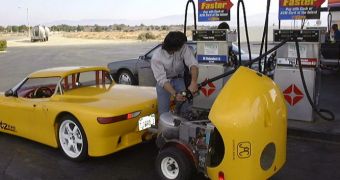Electric cars are not about to be implemented at a wide-scale soon. This is the painful truth, and there are a wide variety of causes for that, including high initial prices, high maintenance costs, and a lack of appropriate infrastructure. However, experts working on a new study funded by the US National Science Foundation (NSF) say that they may have developed a new way of looking at electric vehicles that could see them being more widely adapted faster.
“Cars sit most of the time. What if it could work for you while it sits there? If you could use a car for something more than just getting to work or going on a family vacation, it would be a whole different way to think about a vehicle, and a whole different way to think about the power grid, too,” says University of Michigan mechanical engineering professor Jeff Stein. His team makes use of the NSF funding to investigate the possibilities associated with plug-in hybrid electric vehicles (PHEV), e! Science News reports. One of the approaches to these electric vehicles that the group developed is a concept called vehicle-to-grid (V2G) integration, which could become very popular over coming decades.
In the researchers' vision, the PHEV could not only use the power grid in a smart manner, but they could also contribute to storing electricity from wind turbines and solar panels inside their batteries. They could even be used to feed electricity back into the national grid, the team says, thus additionally contributing to winning money for their owners. The design was presented today, at the annual meeting of the American Association for the Advancement of Science (AAAS), held in San Diego.
“The vehicles we have now provide freedom and meet the needs of individuals. PHEVs and electric vehicles can be a completely different way of using a car, to be something that is defined as being a part of the greater good in concert with others. It has fascinating possibilities.” the team leader adds. The investigators also introduce the concept of “distributed” storage, which basically transforms individual automobiles into mobile power storage units, that could deliver electricity whenever they are not operating.
“If we had lots of PHEVs all plugged into the grid, then what seems like an insignificant amount of energy storage becomes a large energy storage.” “We're exploring how an owner can charge it and utilize the battery in a way that is battery health conscience to extend the useful life of the battery. That's especially important if we also think about charging vehicles at off-peak hours, and it's also important if we're talking about this shared opportunity for electric storage. What's good for the battery isn't necessarily good for the grid,” Stein concludes.

 14 DAY TRIAL //
14 DAY TRIAL //